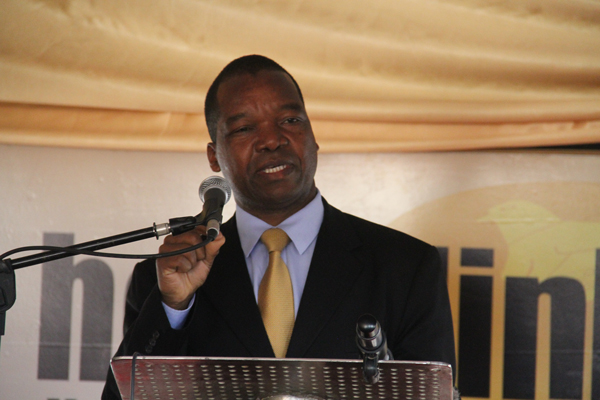
British statesman Winston Churchill once said those that fail to learn from history are doomed to repeat it.
BY NDAMU SANDU

History seems to be repeating itself after Reserve Bank of Zimbabwe (RBZ) governor John Mangudya recently blamed cash hoarders for fuelling the cash crisis, a decade after his predecessor Gideon Gono walked the same path when confronted with a shortage of cash.
In a recent interview with Standardbusiness, Mangudya accused alleged unscrupulous traders of hoarding the bond notes “possibly because they are possessed by the demon of arbitrage with a high propensity to trade in the parallel market”, warning that such malpractices could not be tolerated.
“It is against this background that the bank has intensified monitoring to ensure that traders comply with the provisions of the Bank Use Promotion Act [Chapter 24:24] which requires all traders to bank any surplus cash within prescribed timeframes and to keep records of cash receipts and payments on each day. This best practice law is designed to ensure that money circulates within the economy,” Mangudya said, adding that money, just like blood, needed to circulate for any economy to survive and grow.
Analysts say these blame games had echoes of the past.
At the height of the cash crisis in 2007, then RBZ governor Gono accused cash barons of holding onto the cash.
In a televised interview, Gono said of the $67 trillion that was in circulation, the RBZ could only account for $2 trillion, leaving the remainder in the hands of cash barons, among them top politicians and businesspeople.
- Chamisa under fire over US$120K donation
- Mavhunga puts DeMbare into Chibuku quarterfinals
- Pension funds bet on Cabora Bassa oilfields
- Councils defy govt fire tender directive
Keep Reading
“I know three quarters of them, but professional ethics do not allow me to name them . . .If challenged, I would name them,” Gono said. Former Finance minister Tendai Biti said if “you create abuse, you will get abuse”.
“The Zimbabwean public which has put money in the banks has been abused because they can’t get that money out of the banks. If you abuse me, I will abuse you,” he said.
Biti said focus should be on how the crisis had engulfed the economy “when in 2009 or 2010 we did not have a crisis”.
He said government’s unchecked spending was also fuelling the crisis as it was borrowing from the domestic market.
In a recent statement to Parliament, Finance minister Patrick Chinamasa said government had issued treasury bills (TBs)worth $4,41 billion since 2014.
The World Bank in a report last year said government’s borrowing from the domestic market was fuelling the cash shortages.
In the report, Macro Poverty Outlook for Zimbabwe, the World Bank said from March 2015 to June 2016, government borrowing from the banking sector increased by $1,4 billion or about 10%.
It said the borrowing was financed by TBs, which were purchased by commercial banks at a discount.
“Banks’ purchases of TBs and other public sector borrowing may have contributed to liquidity shortages and crowded out bank lending to the private sector.
“Faced with cash shortages, banks were unable to honour demand deposits,” the World Bank said.
Last week the RBZ set the maximum limit for any cash-back facility by retailers and wholesalers at $20 as it continued with its efforts to address the cash shortages that have weighed down the economy since 2015.











